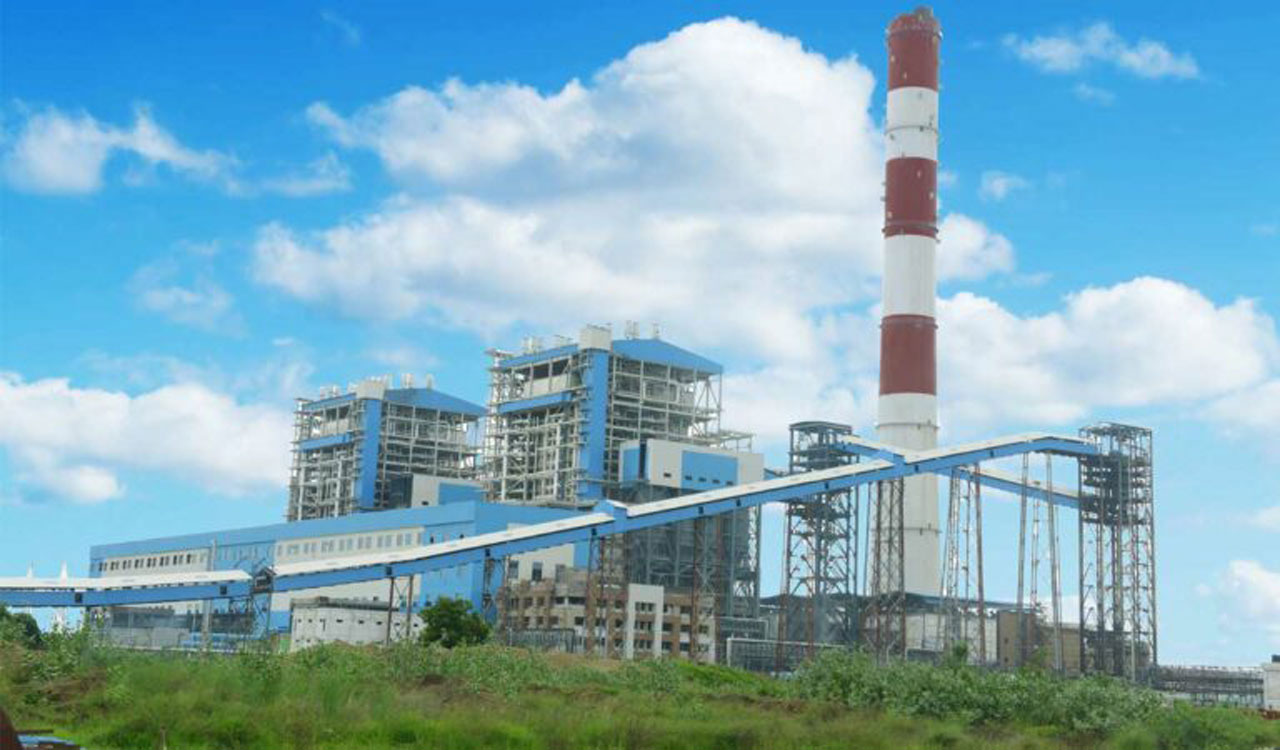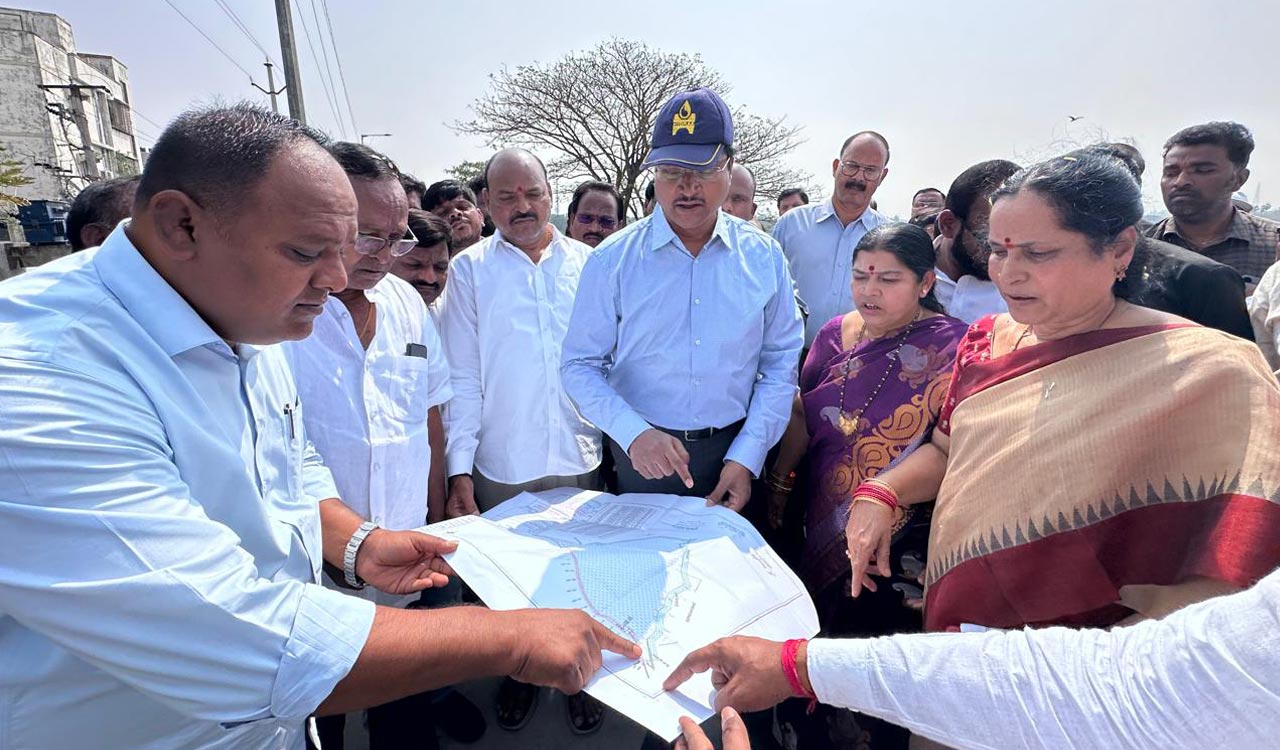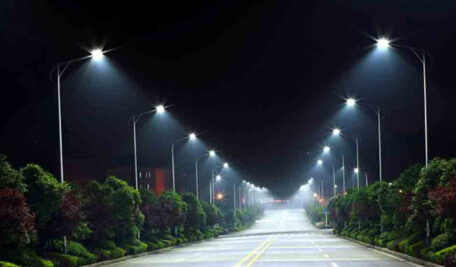YTPS likely to begin operations of two units by end of November
Sources say Energy Minister Mallu Bhatti Vikramarka has asked GENCO officials to take steps to commence operations of the two units by the month end.

Hyderabad: With the completion of the railway line to transport coal to the 5×800 megawatt Yadadri Thermal Power Station (YTPS) project being constructed in Dameracharla area of Nalgonda district by the Telangana State Power Generation Corporation Limited (TGGENCO) , the State government is reportedly making efforts to commence the operations of the two 800 MW units of the plant by the end of November.
Sources say Energy Minister Mallu Bhatti Vikramarka has asked GENCO officials to take steps to commence operations of the two units by the month end. As per schedule, the two units were supposed to start operations from October first week, but as the works of the railway line between Vishnupuram railway station and the plant got delayed due to repair work on Balharshah-Kazipet-Vijayawada railway line, the officials were forced to postpone the operations of the plant.
The Genco has set a deadline for Bharat Heavy Electricals Limited (BHEL), which is executing the project, to commission two units of Stage I by October and the three units of Stage II by March, 2025. Already, Genco engineers have taken up the boiler light-up and auxiliary boiler light-up of Unit-I and II of the YTPS on May 14. The boiler light-up will set in motion the process of commencement of power generation in the plant first on an experimental basis and later on a commercial basis. Although all the five units should have been commissioned by October last year, there was time overrun for all the five units.
Ninety percent work of the plant was completed during the BRS government and only a small portion of work was pending, which the Congress government was now completing. The then Chief Minister K Chandrashekhar Rao laid the foundation of the plant on June 8, 2015, and started in 2017, was initially scheduled by the previous BRS government to complete two units by October 2020 and three units by 2021. However, due to Covid-19, environmental clearance, court cases and technical issues the project got delayed.
The Congress government, which had right from the beginning targeted the previous BRS government alleging delays in construction of the Yadadri Thermal Power Station and even calling it a burden on the people of Telangana, is now hoping that the same project will rescue the State from an imminent power crisis in the near future.
The Genco has already signed an agreement with Singareni Collieries Company Limited for 100 percent coal link for 14 million tonnes per annum (MTPA). Apart from this, TG GENCO has built a 400 acre ash pond on the site. About 14 cement plants and two brick-making units within a 50 km radius of the plant have been approached for uptake. Letters of willingness have been received.
Yadadri power plant Stage-I unit synchronised to grid
The 5×800 megawatt Yadadri Thermal Power Station (YTPS) Stage-I unit was synchronised with the grid paving the way for the commencement of power generation in two units of the plant on Sunday.
Deputy Chief Minister and Energy Minister Mallu Bhatti Vikaramarka put on the switch to link the power generated in the stage-I of YTPS to the power grid. The Deputy Chief Minister along with Irrigation Minister Uttam Kumar Reddy and Roads and Buildings Minister Komatireddy Venkat Reddy visited the plant and reviewed the progress of works.
Later, addressing media persons, Bhatti said linking of the power generated in Stage-I of Yadadri power plant to the power grid was executed successfully and that power generated in the Stage-II of the thermal plant was already connected to the grid. The remaining three phases would be completed by March next year to make 4,000 MW of power available to consumers, he said, adding that opinion of intellectuals and electricity experts in the State would be taken to prepare the new energy policy. If necessary, a special meeting of the Legislative Assembly would be organized and a new energy policy would be brought with everyone’s opinion, he said.
Stating that by 2028-29 power demand was likely to touch 22,288 MW and 31,809 MW by 2034-35, Bhatti said the State government was formulating plans to generate power to meet the estimated demand. The government was also promoting non-conventional energy in the State and encouraging industries to set up solar plants. “We are planning to produce 20,000 MW of green energy in the State,” he informed.
Related News
-
DLTA felicitates Indian Davis Cup team after win over Netherlands
2 mins ago -
Rakul Preet Singh shares fun BTS moments from chilly outdoor shoot
14 mins ago -
Arrival time of Secunderabad–Visakhapatnam Vande Bharat revised
24 mins ago -
Auto driver strangled to death in Bhavani Nagar, wife in custody
31 mins ago -
Crescent moon sighting today: Hyderabad awaits start of holy Ramzan
30 mins ago -
University of Hyderabad participates in Bharat Rang Mahotsav 2026
44 mins ago -
Classical singer Malavika Anand to perform devotional concert at Yadgirigutta temple
54 mins ago -
Anupama Parameswaran signs psychological thriller, shoot begins in May
59 mins ago




